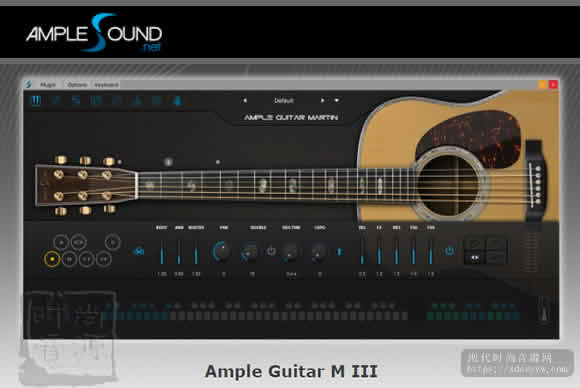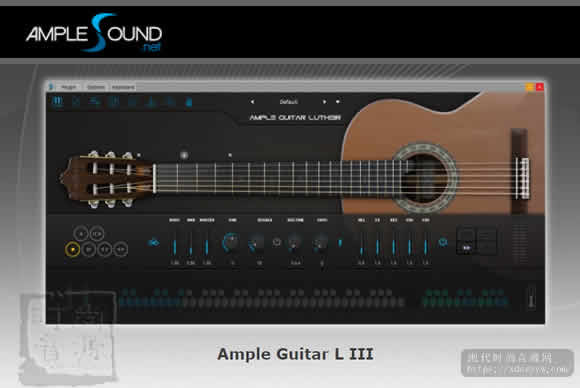![图片[1]-Steinberg WaveLab Elements v10.0.20 XT [WiN] | 音色插件资源网-音色插件资源网](https://www.yinsebar.com/wp-content/uploads/2020/04/17032031_steinberg-wavelab-elements-.jpg)
Team V.R | 17 March 2020 | 264 MB
Mastering is one of the most important parts of the music production process. It is a unique art and, for 25 years, WaveLab has been the number one choice for mastering professionals. WaveLab is a complete mastering solution, with every tool that you will ever need to cover your workflow from start to finish.
With the support of a global network of mastering engineers who all use it, WaveLab is the key to making every aspect of your masters truly professional.
- High-end mastering and editing for digital distribution, CD, Vinyl and more
- Assemble different tracks to create an entire album
- Exceptional metering, real-time FX, offline processors, restoration tools
- Flexible integration of external hardware effects
FAST, INTUITIVE USER INTERFACE
Discover a world of applications
WaveLab is much more than the master of mastering. Its modular approach allows you to use different parts of its comprehensive feature set in every area of professional audio production. Whether it’s sample-accurate editing, precise spectral changes, audio restoration, forensic analysis of sound files and many other uses, WaveLab has the tools to do the job incredibly accurately and intuitively.
New in WaveLab 10
ALL NEW FEATURES
WaveLab 10 continues the evolution of this remarkably flexible product, Including many new features requested by audio professionals to make it more comprehensive than ever before. It now covers every task associated with the mastering process and adds even more innovative tools to maximize its flexibility and use for a wide range of other audio tasks.
HIGHLIGHTS
Reference Track – A/B Comparison
WaveLab 10 introduces a new track type in the Audio Montage workspace, the Reference Track. This allows you to add a reference audio file and switch playback between the reference track and the montage tracks that you are working on, without any glitches or latency. A Reference Track can be routed to the main outputs, to the Playback Processing Section or to a user-defined reference track output, where unused audio outputs on your hardware can be utilized for playback.
Video playback support
WaveLab 10 comes with video file playback in the Audio Montage, allowing you to arrange, edit and process the audio of a video. Using the same high-quality video engine as Cubase and Nuendo, the imported video file is displayed as a clip on the video track.
Videos can be imported by drag and drop into a newly created video track, via the Import in the File menu, or from the Insert tab of the Audio Montage window. If the sample rate of the included audio file doesn’t match the sample rate of your montage, you can create a re-sampled copy of the audio. You can also undock the video playback window and resize it.
Extended external effects support
You can now integrate external effect devices into the WaveLab signal flow by setting up external FX buses. Using a combination of outputs (sends) and inputs (returns) on your audio hardware, you can use external effects in the Audio Montage as Clip, Track and Output effects. If you select an External Effect ASIO plug-in as an insert effect for an effect slot in the Master Section, the audio is sent to the corresponding audio output, processed in your hardware effect and returned via the specified audio input to the plug-in. When any External Effect bus is used in the signal path, WaveLab will use the new ”Render in real time” option for rendering. (Note: External effects are not currently supported in the Batch Processor).
External editor support
You can now integrate other audio editors (like SpectraLayers or iZotope RX) into your WaveLab workflow, giving you the option of modifying an audio file range (in the Audio File Editor) or an audio clip range (in the Audio Montage) in other editors, directly from within your current WaveLab session.
You can include up to three different external editors, easily setting the path to the applications that you want to use. After defining an audio range which you want to transfer to the external editor, you can use the new Editor control in the Edit ribbon to send your selection to it (this is done non-destructively in the Audio Montage), then update the file/clip in WaveLab.
Undo/Redo History for Audio Editor
We have introduced a completely new undo/redo edit history system in WaveLab 10. Available in the Audio Montage and — for the first time — the Audio Editor workspaces, both have their own independent undo/redo log. Unlike common undo/redo histories, which track edit operations, the new WaveLab history system logs versions. A version represents a whole wave file, not just an edit operation.
In the Audio Editor, edit marks also allow you to see where audio parts have been edited, making it possible to recover earlier versions of the edited parts without losing the changes you have made to the rest of the audio.
Montage Inspector
The Effect Tool Window has been completely redesigned and renamed the Montage Inspector, with a Master Section-style appearance. The handling of plug-ins and corresponding functionality — like channel processing, signal routing, loading effect presets and bypass — is now streamlined and consistent between the Master Section and the new Montage Inspector.
Divided into dedicated Clip, Track and Output Inspector sections, the Montage Inspector features a color tool (for the selected clip or all clips on a track when the Track area is selected), a name field (which displays the current name of the selected clip/Track) and tabs for Effect, Gain and Slot, each with access to a comprehensive range of menu commands.
Audio Montage track list overhaul
The Audio Montage window in WaveLab 10 features a number of user interface improvements. The different track types (Audio, Reference and Video) have a new track header design with dedicated controls for each track type. In addition, you can now resize the height and width of each track; seamless vertical scrolling in the Montage window is possible (when you have multiple tracks), and you can simply drag and drop the track header to change the order of tracks.
Live input audio stream recording
WaveLab 10 allows you to record and render live input streams through the Master Section and the inserted plug-in chain, only limited by the number of available audio inputs and the overall performance of your system. This facility allows you to monitor a given audio input bus any time (directly from the Master Section and through the Master Section chain), to record with optional Master Section plug-ins (including external effects) and to record multiple files at the same time, each with different plug-ins, and different output file formats if necessary. Quickly and easily accessed via a new live input button at the top of the Master Section, which opens the bus and sample rate selection menu, activating the live input can be done at any time, even if no file is open in WaveLab.
WHY WAVELAB IS THE PROFESSIONALS’ CHOICE
home page https://new.steinberg.net/wavelab/


![[三体中国民乐全套 效果器合集] 古风中国风编曲必备 R2R [WiN, MacOSX](40GB+)稳定运行版本-音色插件资源网](https://www.audioba.com/wp-content/uploads/2024/12/20240725195002777-QQ_1721908198947-734x550-1.png)

![[最新Ample吉他3代音色免安装25套合集]Ample Guitar Bass v3.7.0 [WiN, MacOSX](77.1GB+)-音色插件资源网](https://www.audioba.com/wp-content/uploads/2024/11/ample-sound.jpeg)
![[智能自动编曲软件 ]band in a box 2024 中文汉化完整版+安装方法 [WiN](201GB+)-音色插件资源网](https://www.audioba.com/wp-content/uploads/2024/10/Band-in-a-Box-10.jpg)










